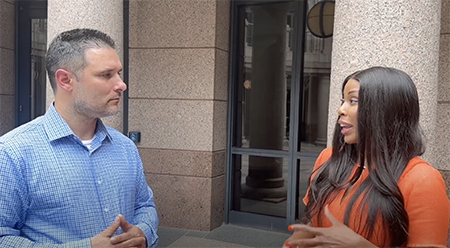Texas Republicans Take Aim at Union Agreements on Taxpayer-Funded Construction Projects
 Texas Republicans are once again taking aim at government-mandated collective bargaining agreements on taxpayer-funded construction projects around the state. A legislative hearing on the issue on Wednesday, though, showcased the fact that no public sector projects in Texas have been done with such an agreement in place.
Texas Republicans are once again taking aim at government-mandated collective bargaining agreements on taxpayer-funded construction projects around the state. A legislative hearing on the issue on Wednesday, though, showcased the fact that no public sector projects in Texas have been done with such an agreement in place.
Those agreements, known as Project Labor Agreements or PLAs, are used around the country and have been controversial for years. Construction industry interests argue the government should not “put its thumb on the scales” while labor leaders say the agreements protect workers regardless of which contractors are eventually hired.
House Bill HB 985 and Senate Bill 473 would require government to stay neutral on PLAs. Put simply, a PLA is a collective bargaining agreement put in place prior to the hiring of any contractors or workers for a high-rise building or some other type of construction like an infrastructure project, for example.
In laying out his proposal before the Texas House State Affairs Committee, Rep. Tan Parker, R-Flower Mound, said "This is not intended to be an anti-union bill…it simply seeks a level playing field by taking the labor issue out."
Rep. Parker said the legislation is focused on "being efficient and free when it comes to awarding resources in state contracts."
Paul Puente, Executive Secretary of the IBEW Local Union #716 in Houston, naturally opposed the bill and said the agreements allow for a steady supply of workers who accept the conditions of the pre-hire agreement. He also said the existence of a PLA allows for resolving bidding issues and better coordination of the project as it is underway.
“A PLA just brings everyone together to allow for union and non-union to compete,” Puente said, adding that “we’ve never had a public PLA in Texas.”
Leonard Aguilar, political director for the Southwest Pipe Trades Association, said he has worked on projects both with and without the agreements. He said they allow the worker to know they’ll have a weekly safety meeting, a clear chain of command when a safety issue arises, available parking, clean facilities, and simple things like a place to sit down and eat lunch. “Things we take for granted and maybe don’t think about too much,” Aguilar said.
As a worker on a jobsite, a project labor agreement “gives you a sense of security and a sense of knowing that you were thought of as this was moving forward,” Aguilar said. “If it isn’t broke, why are we going to try to fix it?”
But Gary Roden, representing the Associated Builders and Contractors of Texas, told the committee that “the imposition of a PLA on a project would only further restrict bidders on that project.”
“A lot of good contractors can’t work on projects supported by their own tax dollars because of PLAs,” Roden said of the way the agreements have been deployed in other states. “Our legislators should be doing everything they can to protect construction workers in our state.”
Rick Levy, President of the Texas AFL-CIO, thanked Rep. Parker for bringing all the union groups together in "solidarity" against his bill, drawing laughter from those in the hearing room. Levy said, “there are good reasons that public entities might want to use one because there are issues that can be avoided by agreeing to certain terms prior to the beginning of the construction.”
Among those issues, Levy said, is something known as worker misclassification or “payroll fraud.” That kind of fraud happens when companies pretend workers are independent subcontractors – when by law they meet the definition of employees – with the intent of avoiding payroll taxes and benefits like accident insurance. Of course, there are many legitimate uses of contractor labor. The problem arises when the 1099 tax designation is abused to illegitimately gain a competitive advantage.
Jon Fisher, also representing the Associated Builders and Contractors of Texas, said this is the sixth time that he and Roden had testified in favor of a similar proposal. It’s previously been passed by the House and Senate, just never in the same session. “Can't get it to the governor's desk that way," Fisher said.
Acknowledging that PLAs have not been used in Texas so far, Fisher said there are reasons to think that at some point they will be, so it makes sense for the Legislature to act. "PLAs have been considered in the public sector in Texas," Fisher said. They were attempted in Dallas but were defeated, he said.
"It's not something that isn't going to happen," Fisher said.
State Affairs Chairman Dade Phelan, R-Beaumont, did not hold a committee vote on the bill for now. The Senate version has been referred to the Business and Commerce Committee but has not been set for a hearing.







